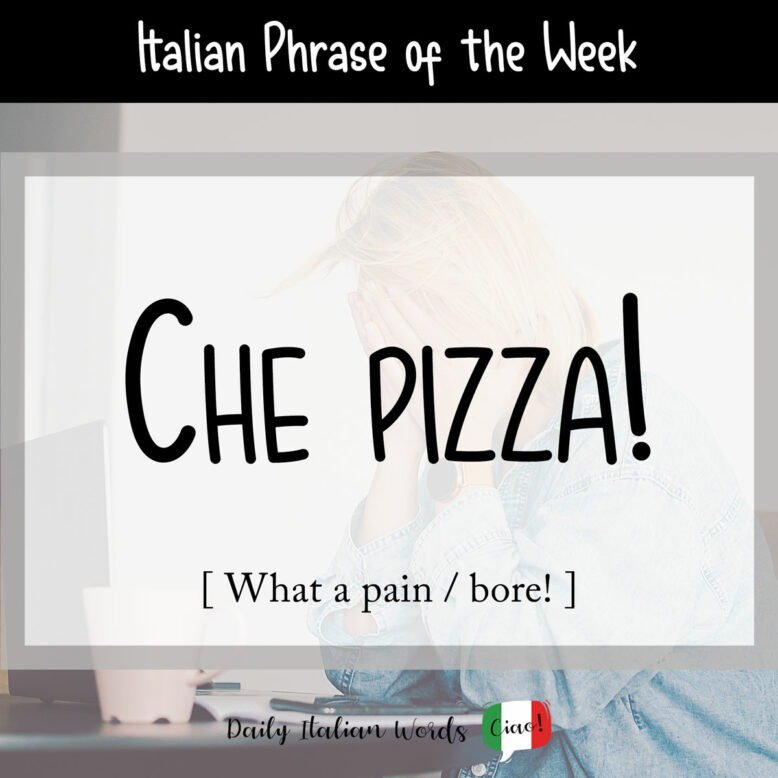One of the aspects I truly appreciate about the Italian language is how food-related words are incorporated into their expressions and idioms. It adds such a flavourful dimension to their language and culture, wouldn’t you agree?
Today, I’d like to share one of my absolute favorite Italian expressions, a phrase I’ve incorporated so seamlessly into my speech that even my son began using it before he turned three! It’s the exclamation Che pizza! which serves as a gentle release of frustration, offering a more refined alternative to ruder words.
Che pizza!
What a pain / bore!

Wondering why the term pizza? Well, opinions vary on the exact reason. Some claim it arose from the tedium of waiting for the dough to rise (a process that could take hours or even days). Others suggest a connection to another meaning of pizza, referring to the metal canister holding a film roll for projection in cinemas, implying that films could be long and dull. Some straightforwardly say it’s a euphemism for palle (literally “balls” in Italian slang), as the two words both start with the letter P.
Che pizza! Non ho voglia di fare i compiti adesso!
What a pain! I don’t feel like doing my homework now!
There are many other examples of swear words being substituted with more polite alternatives in the Italian language. For instance, che cavolo literally translates to “what a cabbage,” and porco zio literally means “pork uncle.” In these cases, the explicit words are replaced with cavolo for the former and zio for the latter, allowing for a safer expression that won’t earn you a slap on the wrist from mom!

Below are some similar expressions that you will definitely encounter as you start to speak the Italian language more and more:
- Che barba! = literally “What a beard!”
- Che noia! = literally “What a bore!”
- Che rogna! = literally “What a scab / scabies!”
- Che rottura (di scatole)! = literally “What a breakage (of boxes)!”
- Che seccatura! = literally “What a nuisance!”
Heather Broster is a graduate with honours in linguistics from the University of Western Ontario. She is an aspiring polyglot, proficient in English and Italian, as well as Japanese, Welsh, and French to varying degrees of fluency. Originally from Toronto, Heather has resided in various countries, notably Italy for a period of six years. Her primary focus lies in the fields of language acquisition, education, and bilingual instruction.


